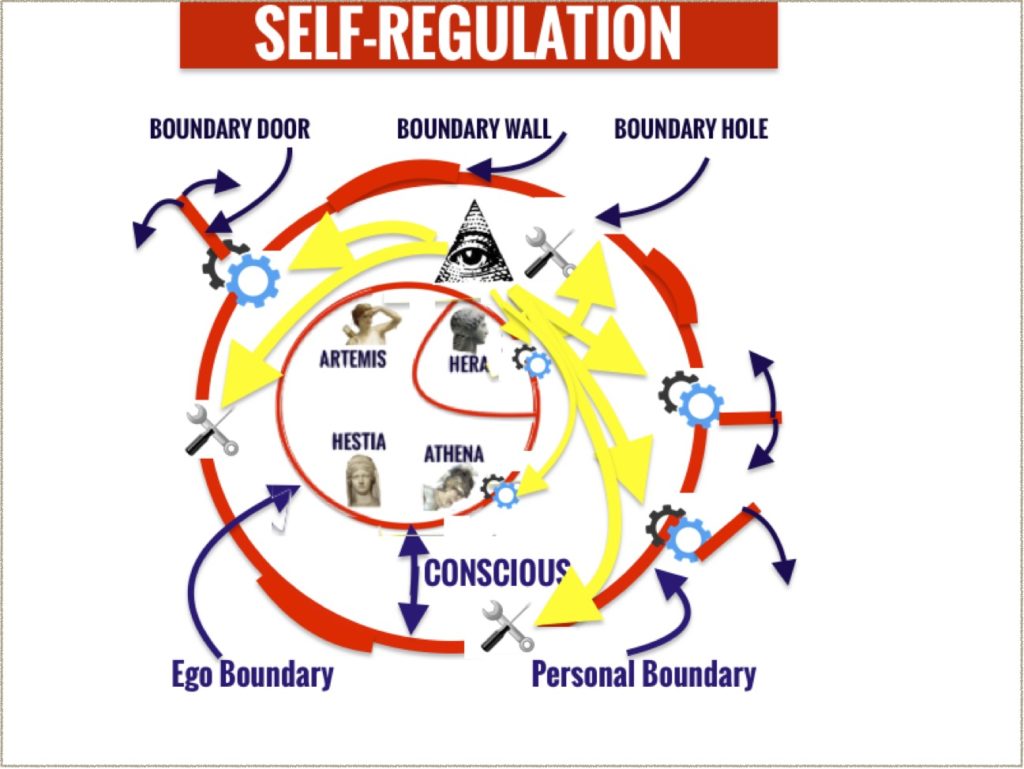This defense really shouldn’t be called a defense at all. It’s a strength, it’s common sense, and a virtue. If there is any reflection of the direct connection between the defenses and one’s personal boundary function, this one is the best of the best as an example.
We discussed flaws or holes in our boundaries in prior sections as being associated with any vague, dramatic emotional experience, especially that of overwhelm. If you think about the concept of self-regulation in such terms, you’ll quickly see that it is the opposite of overwhelm. It is tightening the boundary wall a little when stress amplifies, and it is loosening up in times of relative emotional peace.
We have some difficult emotions on the inside at times, and sometimes we have the negative emotional energy called “stress” coming at us from the outside. What psychological apparatus can explain the interface between what must be better contained on the inside or defended against on the outside?
The personal boundary.
In effect, emotional self-regulation IS the boundary - the apparatus which guides the type of emotion, its intensity, length of expression, and direction of expression.
If you have ever been with a person who “loses it” easily, they obviously won’t make a good partner at pursuing goals together, since they utterly lack emotional self-regulation. However, just because we may recognize the total absence of it, doesn’t mean that we should lack appreciation for its presence to any substantial degree that it stabilizes our potential partner, and therefore, us.


